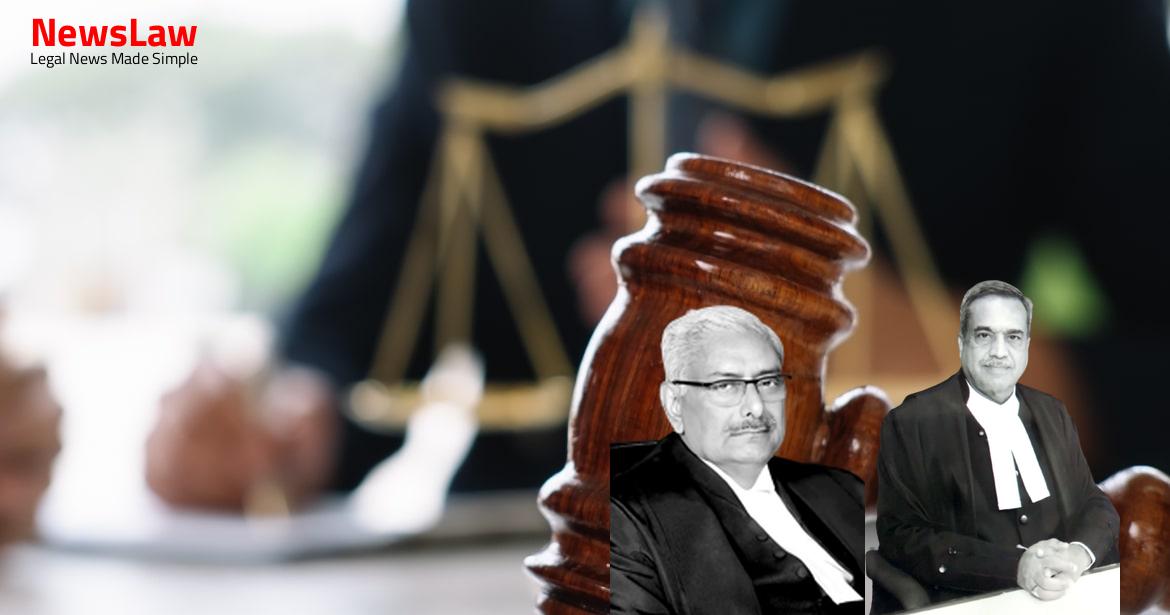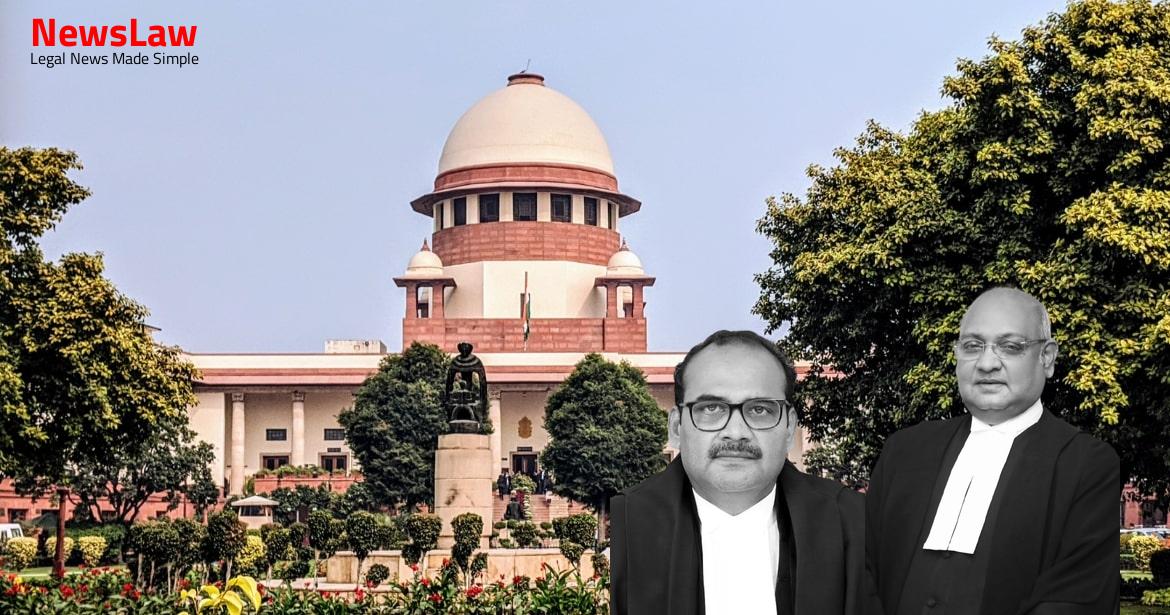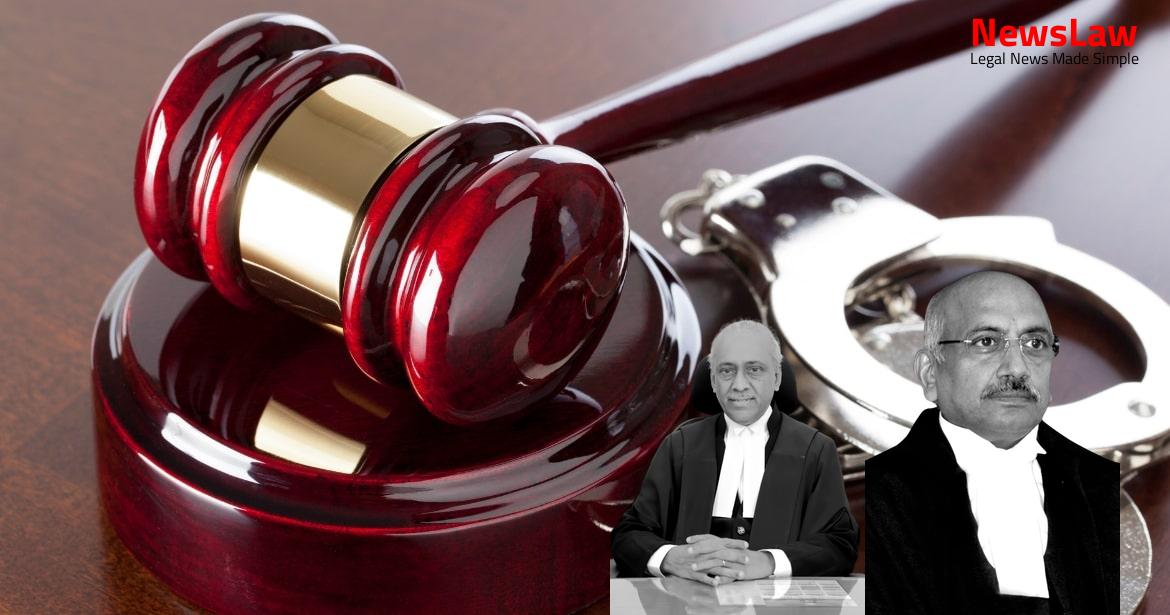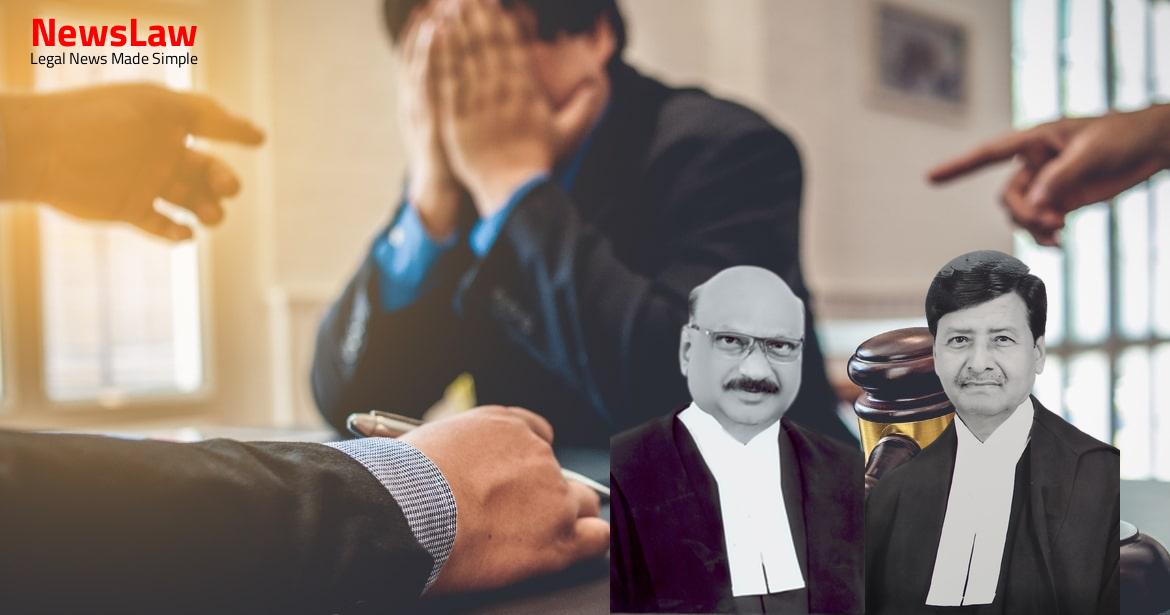Exploring the Supreme Court’s ruling on pension entitlement, this case delves into the rights of Acting Chief Justices. The judgment sheds light on the pension rights of individuals in such roles, impacting future considerations in the judiciary.
Facts
- The petitioner was appointed as the Acting Chief Justice of the Gauhati High Court on 13.08.2014.
- The Department of Law & Justice informed the High Court that the petitioner is not entitled to the higher pension ceiling of Rs.5,40,000 as a Chief Justice.
- The Department requested the High Court to revise the pension report fixing it at Rs.4,80,000 annually.
- The High Court Registry pointed out to the Department that as per Rule 7 of Part-I of the First Schedule to the 1954 Act, the petitioner was entitled to the pension admissible to a Chief Justice.
- The petitioner claimed pensionary benefits as available to the Chief Justice.
- He served as Acting Chief Justice for 14 months and retired on 20.10.2015.
- While serving as Acting Chief Justice, the petitioner received salaries and allowances admissible to a Chief Justice as per the Constitution and the 1954 Act.
- On 20.07.2015, the Gauhati High Court Registry sent documents for the petitioner’s pension and gratuity fixation to the Central Government.
Also Read: Address Update Requirement: Legal Implications for Corporate Entities
Issue
- The main issue in this case is whether the petitioner, who retired as an Acting Chief Justice, is entitled to the pensionary benefits available to a retired Chief Justice.
- The question is focused on whether the petitioner’s position as Acting Chief Justice qualifies for the same pension benefits as a full-fledged retired Chief Justice.
- The determination of this issue will affect the petitioner’s post-retirement benefits and entitlements.
Also Read: Army Discharge Case: Upholding Justice for Long Service Rendered
Arguments
- The petitioner, a retired Acting Chief Justice, is seeking pensionary benefits equivalent to a retired Chief Justice of the High Court.
- The petitioner argues that under Part D of the Second Schedule of the Constitution of India, Acting Chief Justices are equated with Chief Justices in terms of pay and perks.
- The petitioner initially applied for pension under Part III of the First Schedule of the 1954 Act but later clarified that he seeks pension under Part I, which governs pensions for Chief Justices.
- The respondent contends that the petitioner, as a promotee Judge, is only entitled to pension under Part III of the 1954 Act.
- Rule 7 of Part I of the First Schedule treats service as an Acting Chief Justice as service rendered as a Chief Justice for pension computation purposes.
- The petitioner’s claim for pension as a Chief Justice is opposed, with the respondent arguing that an Acting Chief Justice appointed under Article 223 should not be equated with a Chief Justice appointed under Article 217 of the Constitution.
- The respondent emphasizes that the Acting Chief Justice’s duties are performed while the Chief Justice’s office remains vacant, highlighting a distinction between the positions.
- The petitioner’s reliance on the decision in Union of India v. Syad Sarwar Ali (1998) 9 SCC 426 is contested, as it is argued that the case’s facts are different from the petitioner’s situation.
- The respondent underscores that Part D of the Second Schedule of the Constitution and Rule 7 of the First Schedule of the 1954 Act primarily address salary and computation, not the grant of equal pension for Acting Chief Justices.
- The argument revolves around the interpretation of rules and provisions governing pension entitlements for Acting Chief Justices in comparison to Chief Justices.
- An Acting Chief Justice does not take the oath of office and is entitled to the salaries of a Chief Justice only during the period of appointment and functioning.
- Only a Judge appointed and functioning as an Acting Chief Justice is entitled to the salaries of a Chief Justice as per the Constitution.
- The petitioner is not entitled to pensionary benefits available to a retired Chief Justice as Acting Chief Justices do not receive such benefits.
- Any puisne Judge can be appointed as an Acting Chief Justice, creating a distinction between a Chief Justice appointed under Article 217 and an Acting Chief Justice appointed under Article 223.
Also Read: Supreme Court Judgement on Maharashtra Prevention of Dangerous Activities Act, 1981
Analysis
- Service as an Acting Chief Justice of a High Court shall be treated as service rendered as Chief Justice of a High Court.
- Part I of the First Schedule of the 1954 Act applies to a Judge who has not held any other pensionable post under the Union or a State.
- Part III of the First Schedule applies to a Judge who has held a pensionable post under the Union or a State
- The petitioner, being a promotee Judge, may fall under Part III of the First Schedule.
- The petitioner applied for pension under Part III
- Every Judge shall be paid a pension in accordance with the scale and provisions in Part I of the First Schedule upon retirement.
- For pension computation purposes, service as an Acting Chief Justice is considered as service as Chief Justice.
- Conditions for pension payment include completion of twelve years of service, attainment of age sixty-two, or retirement due to ill-health.
- Pension amounts for Chief Justices and other Judges are specified in Rule 2 of Part I of the First Schedule.
- An Acting Chief Justice is treated at par with the Chief Justice only for the purpose of salary, not for pension.
- Service rendered as an Acting Chief Justice is counted as service rendered as Chief Justice for pension computation.
- Rule 7 of Part I of the First Schedule states that service as Acting Chief Justice is treated as service rendered as Chief Justice.
- There is a clear distinction between a Judge appointed as Acting Chief Justice under Article 223 and a Chief Justice appointed under Article 217 of the Constitution.
- Pension computation under Rule 2 requires considering service as an Acting Chief Justice as service rendered as Chief Justice.
- The First Schedule rules are conscious of the period spent as Acting Chief Justice for fixing pension ceilings.
- An Acting Chief Justice appointed under Article 223 is not equated with a Chief Justice appointed under Article 217.
- The petitioner is not entitled to pensionary benefits including the ceiling in the pension available to a retired Chief Justice.
- Only the period of service rendered by the petitioner as Chief Justice will be considered for pension benefits.
- The question of pension entitlement was considered independently from other aspects of the case.
Decision
- The instant petition is dismissed
- Acting Chief Justice service for 14 months can be considered as service rendered as a Chief Justice for pension computation
- The petitioner is not entitled to the relief and declaration sought
- The petitioner is not entitled to pensionary benefits including the pension ceiling for a retired Chief Justice
Case Title: K. SREEDHAR RAO Vs. UNION OF INDIA MINISTRY OF LAW AND JUSTICE SECRETARY.
Case Number: W.P.(C) No.-000300-000300 / 2016



